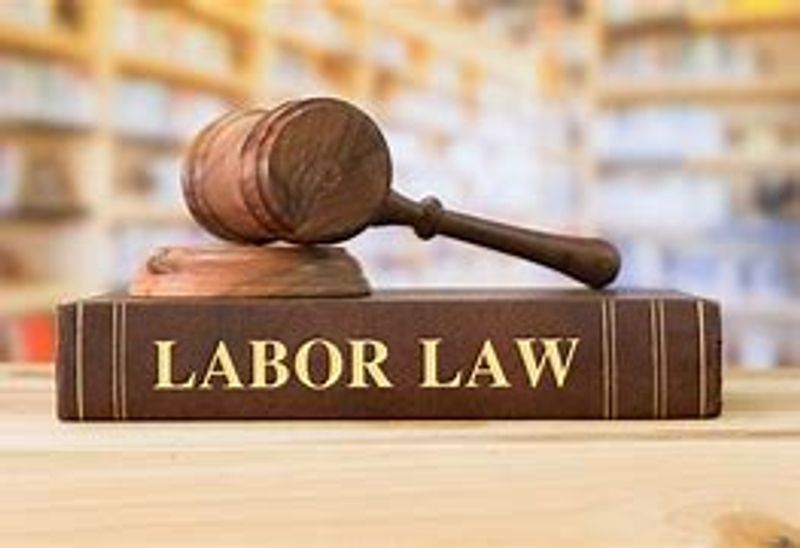“California Employee Civil Action Law Initiative” on November ballot may be just the remedy employers need against PAGA failures

The California Employee Civil Action Law Initiative has qualified for the ballot in California as an initiated state statute on November 5, 2024.
Here is what a “yes” vote would do:
- Repeals the Private Attorneys General Act (PAGA)
- Replaces it with the “Fair Pay and Employer Accountability Act” that provides:
- double statutory and civil penalties for willful violators;
- 100% of monetary penalties be awarded to harmed employees (rather than current 25%);
- resources to employers to ensure labor compliance;
- Division of Labor Standards Enforcement (DLSE) to be a party to all labor complaints;
- no award of attorney's fees, which are currently awarded under PAGA;
- state legislature would fully fund the DLSE to meet the division's requirements by law.
PAGA, a 2004 law signed by then Governor Gray Davis, created a private right of action allowing aggrieved employees to sue their employers on behalf of the state over labor law violations. Governor Davis seemingly promoted the law to return the favor to unions who had supported him during his recall. The unfortunate result of this law has been a minimal return to workers contrasted with huge recoveries for the state and plaintiffs’ attorneys.
A recent report from the Fix PAGA coalition summarized the findings of what has gone wrong with PAGA over its two-decade lifespan: (1) Workers receive three times more when their claims are reviewed by the state vs. cases filed with a court; (2) PAGA cases filed with a court take nearly a year longer than claims filed with DLSE or LWDA; (3) Since 2013, employers have been forced to pay nearly $10 billion in PAGA court case awards, but because of the class-action nature of many claims and heavy lawyer commissions, workers receive only a small portion of these awards; (4) Employers pay far more in litigation fees under PAGA court cases than DLSE cases; (5) Letters of intent to file a lawsuit from lawyers can be used to frighten employers into settling before a PAGA lawsuit is filed; (6) PAGA cases add the unnecessary burden of having expensive legal representation; (7) Workers are being poorly served by PAGA, and DLSE offers the most effective means for workers to recover wages owed; (8) The resources exist to handle an increased caseload at DLSE.
Due to years of results harmful to both employers and workers, proponents of the initiative now include a wide array of organizations such as Californians for Fair Pay and Accountability, the California New Car Dealers Association, the Western Growers Association, the California Business PAC, the California Restaurant Association and the California Chamber of Commerce, to name a few. Here are some statements in their own words in support of the proposal:
- “This measure…protects small businesses that are complying with labor laws and makes it easier to do so. Family farmers cannot afford to be subjected to the shakedown lawsuits that PAGA has unleashed." (Western Growers Association)
- "State data proves that it can take years in the courts before an employee can get a ruling on their claim. Unfortunately, it’s not the workers that get the big payout, the trial lawyers get millions of dollars dragging proceedings out for years." (California Restaurant Association)
- "The California Fair Pay and Employer Accountability Act is an opportunity to reform labor law enforcement to prevent frivolous litigation while ensuring that workers receive the wages they are owed in a timely manner, plus any penalties. The Act would also benefit both workers and employers by allowing employers to consult the Labor Commissioner when there is an ambiguity in the law, to help make sure they are in compliance." “The statutory framework of PAGA is what creates the abuse.” (California Chamber of Commerce)
Over the years, the California courts’ interpretations of PAGA have gotten out of hand so much so that it has created an impossible scenario for employers doing their best to comply with labor laws. The “willful” requirement in the new law would cure this by separating out the distinct labor law violators worthy of being prosecuted from the frivolous lawsuits aimed at nitpicking inadvertent employer errors.
Not surprisingly, personal injury attorneys and labor unions appear to be the main opponents of the measure. And why would they support an initiative that would strip them of what has been their cash cow? The California Employee Civil Action Law Initiative appears to be a sound compromise for both employers and workers. To read the text of the ballot initiative, click here.




